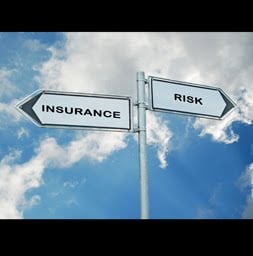 Lack of Business Insurance Can Bring You Financial Ruin
Lack of Business Insurance Can Bring You Financial Ruin
Loretta Worters, Insurance Insurance Institute
If small business owners learned anything from the recent storms and tornadoes that tore through the southern and midwestern United States last month, it is that the fate of their businesses can change in the blink of an eye. That lesson, let us hope, will lead small business owners to look more carefully at how they manage their risks. Large businesses generally have risk managers to advise them on the proper coverage, while small business owners must, in essence, be their own risk managers. But are they managing their risks appropriately?
According to a Travelers Companies 2010 survey, risk management ranks relatively low among priorities for small business owners. The survey found that small business owners prioritize activities related to growing their business over those related to protecting their business against insurable risk.
While there’s no way to lower the risk of a natural disaster, there are critical steps businesses can take to protect their company’s bottom line. The keys to recovery include a disaster plan and adequate insurance, including business interruption insurance (also known as business income insurance).
The question business owners must ask themselves is how long can I afford to stay in business without money to pay new and recurring expenses?
Don’t Overlook the Importance of Business Interruption Insurance
Too many small business owners fail to think about how they would manage if a fire or other disaster damaged their business premises to the point of being unusable. A business that has to close down completely while the premises are being repaired may lose out to competitors, so a quick resumption of business after a disaster is essential.
Business interruption insurance is one of those coverages you don’t want to go without. It can be as vital to a business’s survival as property insurance. Business interruption insurance covers the profits you would have earned, based on your past financial records, had the disaster not occurred. This policy will usually also cover any expenses and costs that the business must pay even though it can’t operate, such as utilities, rent, insurance premiums, payroll, and other expenses.
Business owners can purchase optional extra expense coverage on their property policy to pay for the additional cost of restarting and likely relocating their business while the original property damage is repaired. The extra expense coverage will reimburse the costs above and beyond the normal operating costs. This could cover equipment rental, space rental, and other expenses that are necessary to prevent a business from closing.
Business owners should make sure the policy limits are sufficient to cover their company for more than a few days. After a major disaster, it can take more time than many people anticipate to bring the business back on track. Generally, there is a 48-hour waiting period before the coverage kicks in. Coverage is available only for as long as it is necessary to get the business running again and usually not longer than 12 months.
The price of the policy is related to the risk and will therefore vary by business type. All other things being equal, the price will likely be higher for a restaurant than a real estate agency, for example, because the restaurant carries a greater risk of fire. Also, a real estate agency can more easily operate out of another location than a restaurant.
A disaster doesn’t have to mean financial ruin for a business…unless you’re crazy enough to go without business interruption insurance.
Loretta Worters is a vice president with the Insurance Information Institute. As a national spokesperson for the property/casualty insurance industry, she is frequently quoted in leading publications, including the Wall Street Journal, the New York Times, USA Today, Bloomberg Businessweek, Forbes, and Fortune and appears regularly on ABC, CNBC, CNN, and Fox. Ms. Worters serves as the industry’s chief crisis communications officer, developing and implementing disaster communications plans and working with national media during such catastrophes as Hurricane Katrina, the California wildfires, 9/11, Hurricane Andrew, and the Northridge Earthquake. Follow her on Twitter
Read More:
Save Money in 2011 on Your Premiums
Homeowner’s Insurance Costs: It’s Not How Much Your House Is Worth but How Much It Costs to Rebuild
Divorce and Insurance: Who Gets What Affects Your Coverage
How to Resolve a Claim Dispute with Your Insurance Provider






